Dr. Anne Fisher holds a Ph.D. in Russian Literature from The University of Michigan. She has taught Russian in several institutes of higher learning and is now a professional translator and interpertor living in California. Her first major translation, Ilf and Petrov’s American Road Trip: The 1935 Travelogue of Two Soviet Writers, was shortlisted for the Rossica Prize in 2007 for Excellence in Russian to English Literary Translation. She has since gone on to translate other Ilf and Petrov works such as The Little Golden Calf and her forthcoming The Twelve Chairs, to be published by Northwestern University Press in 2011. She is also the author of a forthcoming biography of Ilya Ilf and has been a court interpreter for the state of Kentucky.

translator and interpreter
SRAS: I note that you studied abroad four times as an undergraduate – first in Scotland, then Germany, Austria, and finally in Russia – before graduating with a degree in Russian. First, can I assume from this that you didn’t always intend to major in Russian? Second, what first hooked you on the language?
Anne Fisher: As a high-school student in Tulsa, I wanted to study a language more “exotic” than my high school’s offerings of French, German, and Spanish. So I took Russian by satellite through a neat program developed by Oklahoma State. The other high-schoolers who took this class were some of the brightest and quirkiest kids around, which was fun, and it helped that part of our daily homework was to play a special computer game where we had to decline Russian nouns to save the world from attacking space aliens. This was right before 1991, and the symbolism of this, which escaped me at the time, is simply marvelous.
When college time rolled around, I was upset that my parents made me attend a state school, The University of Oklahoma. But if I hadn’t, I would never have had access to OU’s vast array of reciprocal exchange programs, and I probably would never have studied abroad at all. As it was, I went abroad as soon as I could, spending my sophomore year in Scotland. That gave me the bug and I spent 2.5 more years abroad, culminating in a year in Petrozavodsk, Karelia. I always recommend that first-timers in a country live and study outside that country’s biggest cities, and for me, living in that godawful dormitory in Petrozavodsk cemented my determination to continue my Russian studies after college: there was no way I was going to let all that work just go down the drain!
As much as I’d like to say that I consciously pursued a Russian degree as an undergraduate, it’s probably more accurate to say that I stumbled into it just because I always took Russian-related courses wherever I went, hoping that I’d eventually be able to study in-country. One interesting experience was studying Russian in Austria, at a point when both my Russian and my German were still fairly basic. The teacher would sometimes explain things three times – once in Russian, then in German for the class, then a third time in English, for me. It was a nice introduction to that European facility with languages, and a real contrast to the States, where people tend to be impressed if you speak even one foreign language!
SRAS: What training and education did you have specifically in translation and interpretation – and how did you break into both fields?
AF: I took an interpreting course in Austria, but was laughably unprepared for it. You usually interpret into your native language, which for this class was German, of course, and so here I was attempting to simultaneously interpret from English into a language I’d studied for just a couple of years! I sat stunned in the booth like a deer in headlights, trying to compose the sentence and completely losing track of the verb.

Apart from that, I’ve had no formal training in interpreting, and I would say that I am far from having “broken into” interpretation. I have worked briefly as a court interpreter for Russian in Kentucky, though, and I loved it. It’s a serious responsibility, since someone could, for example, go to jail, or lose custody of their children, if you mess up. It’s also a magnificent challenge, since an experienced court interpreter has fluent mastery of several registers of spoken and written Russian and English. It’s also a fascinating sociological arena, since many lawyers and judges have no idea what simultaneous interpreting actually requires, and, as a result, they don’t know to respect the skill and professionalism of the interpreter who remains perfectly “invisible.”
I think the field is going to undergo massive growth especially with the bill in Congress (The State Court Interpreter Grant Program Act of June 23, 2009), and this will be an exciting time to get in on the ground floor, as they say, as this relatively new field begins to standardize its practices and protocols. (I should also note that I’m still pursuing my certification for legal interpreting. I was able to interpret in Kentucky because there are no certified legal interpreters for Russian in the entire state, so the Administrative Office of the Courts had me undergo evaluation and training so I could work provisionally for them. Now that I’m in California, though, there are many certified legal interpreters for Russian, and I will have to be state certified if I want to work here.)
As for translation – I have no formal training, and I have never taken a translation course. But literary translation is, I think, more forgiving in this sense than commercial, technical, or other kinds of translation. I got my start by chance, when I was asked to translate a text by Ilya Ilf and Evgeny Petrov, the subjects of my dissertation, while I was finishing graduate school. Even though it was unpaid, and the timing wasn’t great, I agreed, thinking it would be a great way to get my foot in the door. It was. The book, Ilf and Petrov’s American Road Trip: The 1935 Travelogue of Two Soviet Writers, was short-listed for the Rossica Translation Prize in 2007. This helped establish some credibility, and was an opportunity to meet other translators and publishers, which led to paid translation jobs over the next few years.
SRAS: Can you describe the process of translating – from finding the job (or deciding what text to do next), to the process you use for producing a finished translation, to delivering the work and receiving payment.
AF: All my projects have logically progressed out of something I already had a hand in. For example, I realized that I didn’t like the available English translations and editions of the books I wrote my dissertation on, Ilf and Petrov’s The Twelve Chairs and The Little Golden Calf, so I wrote up a sample translation, researched publishers, and crafted cover letters to publishers who would be logical choices. Then I realized that while now there would be more of Ilf and Petrov’s texts available to the English-speaking reader, this audience would still not have access to much on Ilf and Petrov themselves. So this led to the idea of working with Alexandra Ilf on a biography of Ilf and a translation of her father’s famous writer’s notebooks. And finally, my husband, the poet Derek Mong, has long been pestering me to find a Russian poet whose work we could translate together as a team, so I used that as an opportunity to do a lot of reading until I found Maxim Amelin, a contemporary poet whose voice I think really stands out in his generation.
My process is pretty straightforward: sit down until the daily quota of words translated is accomplished. When I was working on Ilf and Petrov’s novels it was a full-time job: I had a dedicated desk in the living room and I translated every day for six to ten or more hours. I rely on the Internet (Google and Wikipedia in Russian and English, plus a host of on-line dictionaries and thesauruses) for almost all my research needs. I find myself using the Internet for English more than I would have thought, checking to make sure that something really is commonly said in English, and that I didn’t just make it up. And it’s often worth your while to take the extra time to flip through a thesaurus, too; I like freethesaurus.net.
When working with a book-length project, you need to plan to have the entire manuscript sit around and breathe for a while once you’ve finished it. You need time to forget it so that when you proof it that one last time before you send it to the publisher, your mistakes leap out at you in 3D. Now, it’s true that the publisher will have an editor and/or a copyeditor read your work, but there’s no guarantee that either of these will have any Russian, so the only mistakes you can really count on your publisher (editor) helping you find are mistakes in your English. With The Little Golden Calf I was lucky enough to have both an editor and a copyeditor who are Russian to English translators themselves, so we had some important discussions that made the translation stronger.
But to get back to the daily grind of translation: there’s a balance you need to strike while working on your very first draft. This is the balance between working out a satisfying translation right then and there, versus leaving an FTL (Fix This Later) in your draft and moving on to preserve your flow. Leaving too few FTL’s means that you have a more finished draft when you edit, but you could be spending too much time sorting pins before you’ve got a sense of the big picture. Alternatively, leaving too many FTL’s means that your draft is so incomplete that trying to edit the text is useless – you’ve basically got to go back and finish translating, and then you have to go back a third time to start actually editing. If you do this too much, it will become a real issue as deadlines loom.
Finally, there’s also the question of having enough friends. Russians say “не имей сто рублей, а имей сто друзей” (literally: don’t have a hundred rubles, but rather a hundred friends), and they are totally right! I rely liberally on people who know more than I do, which is another reason to move quickly through a first draft if you can – you need to be able to give your busy friends and colleagues reasonable time to reply to your questions before you have to meet your deadline. But sometimes you have to go pretty far afield for your answers.
One example: in The Twelve Chairs, some journalists are making fun of a hack writer who throws around horse terminology, but who really doesn’t know a racing saddle from a hame strap. I also don’t know racing tack, or any equestrian terminology, for that matter, so I didn’t automatically take the online dictionaries’ word for it when they told me that the word in question, супонь, was “hame strap.” Online dictionaries are often mistaken, and if I don’t know what a hame strap is in English, how do I know whether the translation is reliable? So I did some on-line research and found that супонь is, in fact, part of draft horse harness and has nothing to do with racing tack (which is the point the journalists were making), but I also found that American and Russian draft horse collars are constructed a little differently, so that it’s possible that what Russians called “супонь” and Americans called “hame strap” might not actually be the same thing. I asked on Proz.com, which has helped me many times, and my answerers confirmed “hame strap,” but I was still uncertain – after all, they were probably just relying on the same sources as I, and probably did not speak from a position of expertise on horse harnesses. So then I did what I should’ve done from the beginning. I called the Kentucky Horse Park, and explained that I needed to know about a particular bit of harness, and related the difference between the Russian collar and the American one. The kind folks there confirmed that a супонь and a hame strap basically do the same thing in both kinds of collar, at which point I was finally convinced of the translation! While I was probably being paranoid in this particular case, a little suspicion has prevented me from many a blunder and I think it’s generally a very useful thing for a translator.
I hesitate to talk about the payment process, simply because for literary translation, the payment is so small as to be negligible. Unless you’re a big name with a big publisher, you probably will not be able to secure an advance anymore (and even if you could, it would probably be an advance on your royalties, and you’d probably have to sell out your entire print run and have another before you’d make your advance and start seeing additional money). If you are not a big name with a big publisher, but you still manage to net two or three thousand dollars for your book-length translation, either in an advance or in royalties (and remember, this pays for all the other work you did, too, such as writing the translator’s introduction, any notes, etc.), then you may consider yourself extremely lucky. It will be easier to find a home for shorter things, like short stories: start submitting them to literary journals. However, what these journals can offer in return varies widely, from two free authors’ copies of the journal to $10-20 per page. Finally, there is the minefield of negotiating your own price per word or character. This is tricky since there are several different systems of calculating the length of a job. For example, if you’re pricing by the character instead of by the word, you must determine whether you are including spaces, and in both cases you need to determine whether you’re calculating based on the original document or the resultant translation. You should never agree to work for less than 7 cents a word, unless you have a very good reason.
SRAS: Wow. Does the process for interpreting differ? How do you prepare for an interpretation gig?
AF: Very much so. I love Lynn Visson’s book From Russian into English: An Introduction to Simultaneous Interpretation. She is absolutely right that interpreting and translating demand very different things. I’d say that literary translation is an all-day orienteering meet, while legal interpreting is the five-hundred-yard dash. For beginning court interpreters it can be very intimidating, since it’s unlikely that you’ll be able to keep up with the judge, who is going to rattle off her spiel a mile a minute and expect you to have it memorized too.
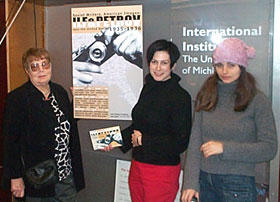
So, I had a long preparation process: 1) review relevant vocabulary the night before (family court terminology is different from traffic court terminology, for example). 2) lay out clothes, interpreting bag (transmitters, dictionaries, pens/pencils/notepads, toothbrush/mouthwash/etc), snacks and practice tapes from Acebo. 3) get a good night’s sleep. 4) wake up and stretch out/do yoga (this sounds silly, but interpreting can be so stressful that if you have a bad back, like me, it’s best to loosen and relax it beforehand). 5) get a good breakfast. 6) leave as early as 5 am to drive to interpreting location (this could be as little as a 20-minute drive, or could be over two hours one way), planning to arrive on location forty minutes to an hour before court time (legal interpreters are paid for travel time, which is like paid warm-up time, since you use the time in the car to work with the Acebo tapes and get into interpreting mode). 7) go through security and head straight for bathroom to get your game face on. 8) arrive at courtroom 20-30 minutes early. 9) inform bailiff that you are there. 10) hurry up and wait.
SRAS: What’s the biggest challenge you have faced as a professional interpreter?
AF: I’ve already talked about the global challenge of mastering the vocabulary and various registers required for legal interpreting. A more specific challenge is that people new to the legal system don’t always understand that a legal interpreter is a “magic telephone” and can only say what is said. For legal reasons, the interpreter must not have any independent voice in the conversation. This can cause frustration for LEP (Limited English Proficiency) clients who want the interpreter to go ask the lawyer something. Or, it can mean a rocky start to a session with people who don’t understand the principle:
Prosecutor to interpreter: “Ask him if he brought his forms today.”
Interpreter to client: “Ask him if he brought his forms today.”
Client to interpreter: (looks around) “Ask who?”
Interpreter to prosecutor: “Ask who?”
… and so forth. These situations require a short educational intervention from the interpreter!
SRAS: You have been somewhat prodigious at receiving funding to support your work and studies. Let’s start with the Fulbright you received in 1999-2000. What was the application process for that like and what did you do with the funding?
AF: This was a graduate student Fulbright. The application process required a lot of writing; as a basic rule of thumb, every big grant application is roughly equal to a seminar paper (if not a publishable article!) in terms of the time it takes to put together, and this is where I learned that. This is also where I learned that you need to be able to count on recommendations – I didn’t get this Fulbright solely on my own recognizance. I also began to differentiate between a good research topic and a bad one as I talked to various professors about my possible research interests.
This was particularly good for a student trying to spiral in from a broad, breathless enthusiasm for early Soviet prose satire to a manageable dissertation topic, and also, professors’ reactions to my ideas helped me learn who might be a potential advisor. Finally, it’s where I realized that you are blowing an opportunity to easily improve your work if you don’t have others read it before you submit. I got the fellowship, but as soon as I arrived in Moscow and started sitting in on classes at the Literary Institute, I realized that my topic (the writers of the popular newspaper Gudok, or “The Steam Whistle”) was far too broad, so I narrowed it down to Ilf and Petrov, who seemed to be the least studied and have the most intriguing ratio of integrity to success.
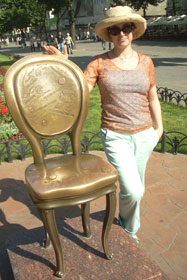
So, I also spent a lot of time at RGALI (Russian State Archive of Literature and Art in Moscow) swimming in Ilf and Petrov’s files and at the Lenin Library ordering and examining all hundred-plus editions of Ilf and Petrov’s works. I had no idea why I was doing it at the time, but later, when I discovered Darnton, Chartier, and the concept of book history, this information became the backbone of my dissertation.
SRAS: You have also received funds from the NEH and NEA to complete translations. How did you find out about these grants, what did you do to apply? We’d also be interested to know if the works produced with these grants can be sold by you commercially – or do they go straight to public domain (as though the gov’t has bought them by helping to fund their production).
AF: These are both very recent awards, from 2009 and just this September. I’m grateful that our government and our taxpayers continue to support the arts, since otherwise there is no way I could afford to spend time on these projects. I and my co-writers will retain the rights to our work, since public domain status is determined by the expiry or explicit rejection of copyright, not by the source of funding that supported the work. So, when we’re done, we’ll have to seek out publication venues for our work just like everyone else. Of course, grant-givers do expect to be acknowledged in all publications resulting from their support, which is more than reasonable.
As for how I came to apply for these grants, I have my husband to thank for that idea, since as a poet he is more attuned to grants that support writers, while because of my academic background I had always tended to try more for grants supporting teaching and research. The application process was even more time-consuming than I thought, and I was glad to have doubled the time I originally allotted to writing up all the documents, essays, and statements, as well as getting the necessary permissions. It also helps to apply for more than one grant for the same project, since, as we know, первый блин комом (the first crepe is crap) – and once you’ve written up one grant proposal in its entirety, the subsequent ones you can model off it will be better.
SRAS: Would you describe translating and interpreting as a “good job.” Why or why not?
AF: Well, first of all I’d separate translating from interpreting, and then I’d say it depends on what kind of translating and what kind of interpreting.
Literary translation is my dream job, giving me the perfect combination of creative freedom and practical constraint (I have to translate the text in front of me, but I can do it however I want). I get to do all the fun things a writer does, using language with skill, wit, and grace, but I don’t have to do the single hardest thing a writer does, which is confront the blank page with nothing but ideas for guide or prompt. But unless you have a day job, or some other source of income, you will not be able to make ends meet doing literary translation.
Interpreting also has several faces; for example, specialized escort interpreting can be fantastically lucrative, but hard to break into. Medical interpreting is just as challenging and exhilarating as legal interpreting, but is paid miserably by comparison. It also suffers from a bizarre lack of respect: many in the medical profession, as well as in the general public, continue to think nothing of getting “Aunt So-and-So” or “that one guy who spent the summer in Guatemala last year” to come interpret at the doctor’s office, while no one would want to depend on said person in court.
Are translating and interpreting good jobs? That depends on what a good job means for you. In general, I’d say that if you enjoy being constantly challenged and are an extreme self-starter, then you are more likely to succeed at whatever form of translating or interpreting you decide to pursue.
SRAS: Are you a member of any organizations that provide you support as a translator or interpreter (moral, legal, etc.)? Would you advise students to join these organizations “early?”
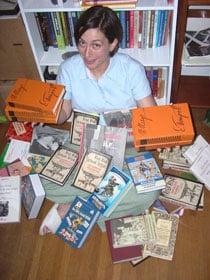
AF: The ATA (American Translator’s Association) is very useful not only for the chance to network at the yearly conference, but for the chance to take their practice certification tests, complete with feedback. Currently the only national certification for translators is the ATA, and some translation companies require that you have this certification, so the chance to take the practice test is useful. But you don’t even have to be a member to read ten years’ worth of SlavFile, the Slavic Languages Division newsletter, which is a splendid resource. As far as I know there is no national medical interpreting certification, but there are many state or regional medical interpreters’ groups (mine would be CHIA, the California Healthcare Interpreting Association) that can help with finding jobs, getting training, etc. For legal interpreters, there is one national organization, NAJIT (The National Association of Judiciary Interpreters and Translators), and many (unaffiliated) local associations. Although membership to these organizations can be expensive, I would advise it, especially for those who are starting out without having gone the more traditional avenue of getting a degree in translation, interpretation, or globalization and localization. Finally, go look around on Proz.com, which is a really neat resource for translators and a great community.
SRAS: What other advice would you offer students considering a career in translation and interpretation?
AF: Talk to people, shadow people on the job, think about your own likes and dislikes, and choose your branch of translation/interpretation/globalization and localization. Decide whether this is how you’ll make a living, or whether it will be a secondary pursuit. Then, think about how to get there: do you want to go to school (or go back to school) for a degree, which will cost money, but open many doors for you? Or do you want to study and work entirely on your own, get certified (when applicable), and find your own jobs? Do you want to work with a company, or do freelance? Although crowdsourcing and computer-assisted technologies are changing the landscape of huge swathes of the profession, I don’t see our global need for interpreting and translating going anywhere but up. It’s sort of a Wild West situation right now, since there are only a few bodies regulating individual segments of the profession in the US, so there is a lot of disparity between the good, the bad, and the ugly as far as companies and jobs go. The sooner you learn to distinguish between them, the better! Overall, though, the profession seems to self-select for generous, interesting, accomplished people, and it’s been a real pleasure to work in the field.
More From Translators from the Field
(Included current article)

Adam Fuss: Translating Russian Communications
Adam Fuss has worked as a freelance writer, editor, translator, and communications professional for over eight years. Prior to establishing ABF Communications in early 2008, he worked on a series of assignments in Moscow, Russia as a writer and translator for several high-profile global corporate communications projects. He holds a graduate degree from Georgetown University’s School of Foreign Service. […]
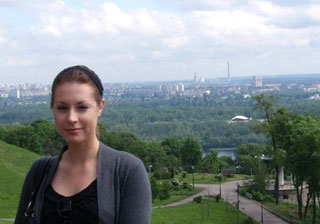
Erin Decker: Translation, Editing, and Advancement in Russia
Erin Decker holds a BA in Political Science and International Studies (Global Security) from the University of Wisconsin-Madison. After completing SRAS’s Translate Abroad program in 2009, she went on to find employment as a translator and editor in Moscow and has lived there since. SRAS: You are currently an analyst-level editor for Equity & Fixed Income Research at […]
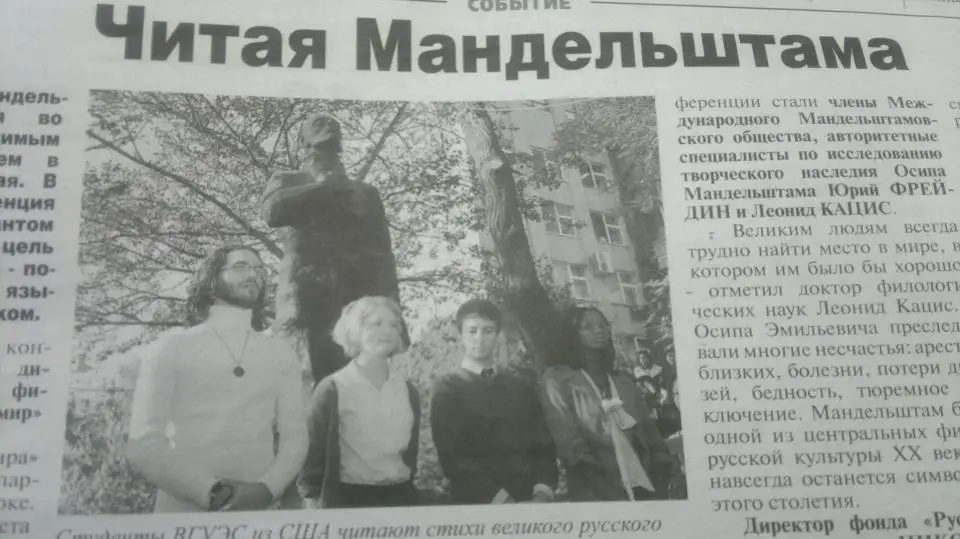
Translating Mandelstam in Vladivostok
One of the things that I enjoy about the Vladivostok State University of Economics and Service is how the Russian language department there is always trying to involve the international students in cultural events. Whether it’s a weekend trip to an archeological dig site, or a visit to the theater to see a movie about […]

Robert Chandler: Translation as a Career and a Love
Robert Chandler graduated with a BA in Russian and English Literature from Leeds University. His translations from Russian include Vasily Grossman’s Life and Fate and Everything Flows, Leskov’s Lady Macbeth of Mtsensk and Aleksander Pushkin’s The Captain’s Daughter. His co-translations of Andrey Platonov have won prizes both in the UK and in the USA. His translation of Hamid Ismailov’s The Railway […]

Anne Fisher: Translation and Interpreting as Professions
Dr. Anne Fisher holds a Ph.D. in Russian Literature from The University of Michigan. She has taught Russian in several institutes of higher learning and is now a professional translator and interpertor living in California. Her first major translation, Ilf and Petrov’s American Road Trip: The 1935 Travelogue of Two Soviet Writers, was shortlisted for the […]
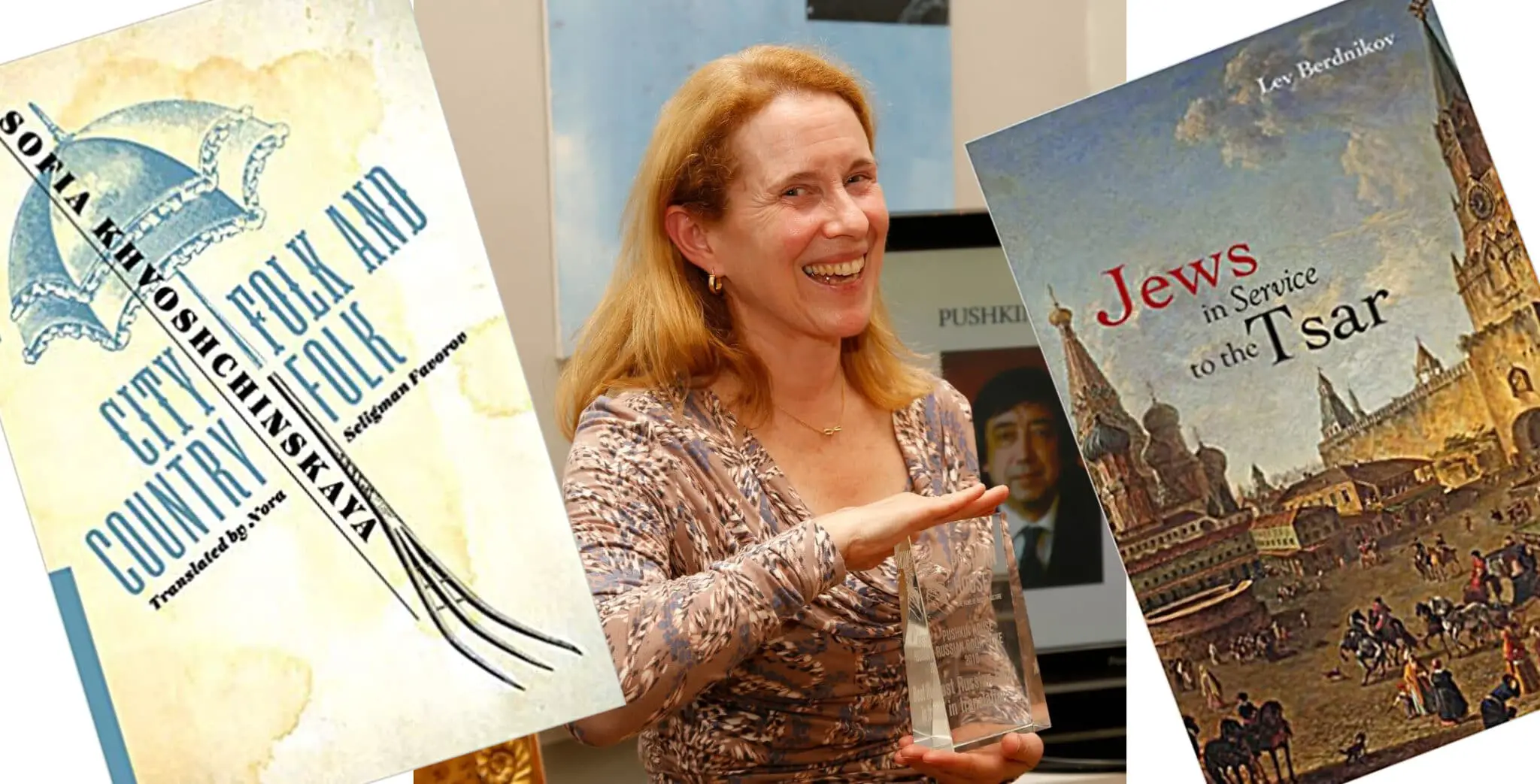
The Accidental Translator: Interview with Nora Favorov
Nora Favorov is a freelance, professional translator working in the Russian>English market and is an active member of the American Translator Association. She recently took some time from her piles of manuscripts to talk about how she came to work in her profession and what it’s like to work in a profession that often must bridge art […]
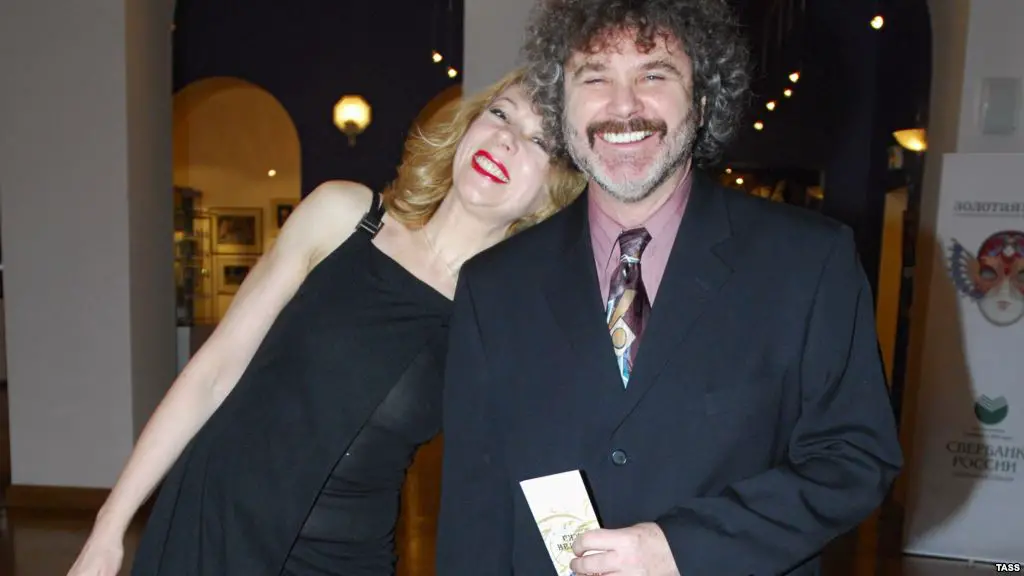
John Freedman: Man of the Newspaper, Theater, etc
John Freedman first came to Moscow in 1988 to research his dissertation for a Ph.D in Russian Literature. He found out a lot. He also found a woman he loves and some incredible professional and personal opportunities. He is now an editor for Moscow’s largest English-language newspaper, a published author and translator, and has been […]





